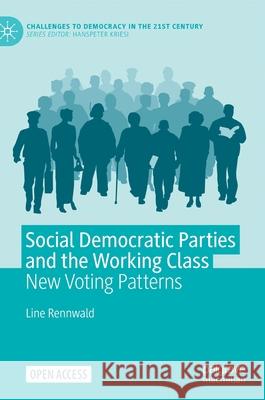Social Democratic Parties and the Working Class: New Voting Patterns » książka
topmenu
Social Democratic Parties and the Working Class: New Voting Patterns
ISBN-13: 9783030462383 / Angielski / Twarda / 2020 / 111 str.
Kategorie BISAC:
Wydawca:
Palgrave MacMillan
Seria wydawnicza:
Język:
Angielski
ISBN-13:
9783030462383
Rok wydania:
2020
Wydanie:
2020
Numer serii:
000447448
Ilość stron:
111
Waga:
0.31 kg
Wymiary:
21.01 x 14.81 x 0.97
Oprawa:
Twarda
Wolumenów:
01
Dodatkowe informacje:
Wydanie ilustrowane











